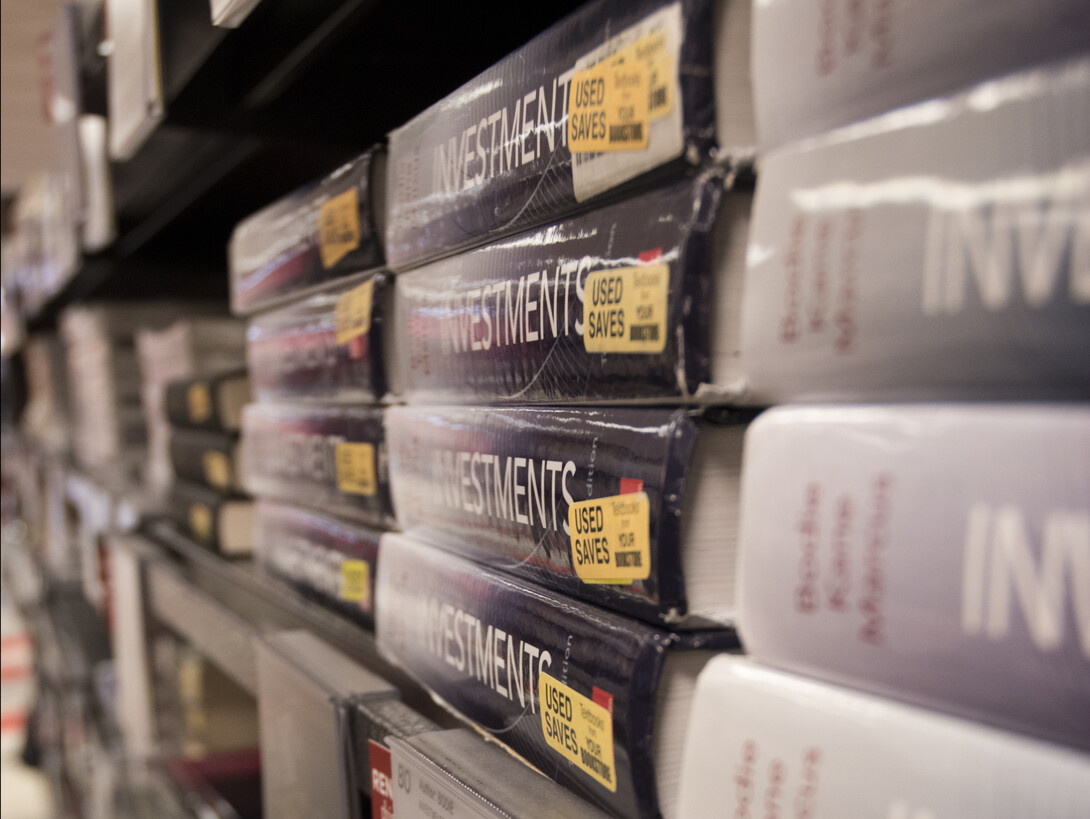
Programs at the University of Nebraska–Lincoln have saved students an estimated $7.9 million in textbook costs and replaced 130,405 textbooks with affordable content.
The savings are part of multiple affordable textbook programs implemented in 2019 across the University of Nebraska system. Combined, the NU system programs have saved students more than $10 million.
“Offering affordable access to a Big Ten degree is a hallmark of the University of Nebraska–Lincoln,” said Amy Goodburn, senior associate vice chancellor and dean of undergraduate education. “These textbook programs have proven invaluable to lowering education costs and debt load for our students.
“I applaud the work of our instructors and partners to assure the successful implementation of these programs.”
Multiple affordable textbook programs are in place on campus, including Follett Access (through the University Bookstore), Unizin Engage and OER seed grants (via the STAR initiative).
Inclusive Access
Both Follett and Unizin offer inclusive access concepts that reduce textbook costs by as much as 80%. Textbook publishers offer this cost savings to students by having a course sign up for the program and opting all students into the textbook purchase. Publishers are able to lower costs through higher volume by using this process.
Student textbooks are available in the Canvas course on day one of the class. Students are charged for the cost of the textbook on their student account bill. Students have the option to opt out of the purchase at the beginning of the course. If they opt out before the deadline, they will not be charged for the text and will lose access to the Canvas textbook after the deadline passes. If a student adds a course using an inclusive access textbook after the deadline has passed, they will not be able to purchase the text at the discounted price.
The two Inclusive Access programs have saved students more than $5.9 million in textbook costs.
The Campus Bookstore (Follett) Access program has saved an estimated $4.8 million and replaced 84,621 textbooks with affordable content. Instructors who would like to participate can contact Jennifer Baack at the Follett Campus Bookstore, j.baack@follett.com, and ask about Inclusive Access pricing.
The Engage Inclusive Access program, available through Unizin membership, has saved an estimated $1.1 million and replaced 20,462 textbooks with affordable content. Instructors can contact Brad Severa at bsevera@nebraska.edu if they would like to participate in Unizin Engage.
Open Educational Resources
The OER — or open educational resources — program offers free and openly licensed educational materials used for teaching, learning, research and other purposes. The resources are most often free or offered at greatly reduced costs.
The OER program has saved an estimated $2 million and replaced more than 25,322 textbooks with affordable content.
More than 119 courses, 638 sections and 115 faculty have participated in OER.
Instructors can contact Brad Severa at bsevera@nebraska.edu if they would like to know more about the OER program.
STAR: Successful Teaching with Affordable Resources
The affordable content programs are part of STAR, a campus initiative to decrease the cost of student education by making access to textbooks and course content more affordable.
STAR relies on resources in the Office of the Executive Vice Chancellor, University Libraries, Information Technology Services and the Center for Transformative Teaching.
Since 2019, STAR has awarded $182,255 for faculty OER seed grants. Funding has been provided through the Provost Office Kelly Funds, Women Investing in Nebraska, Information Technology Services and the Center for Transformative Teaching.
The STAR Team coordinates with all four University of Nebraska campuses on affordable content programs and practices.
Open Nebraska
NU institutions are also piloting “Open Nebraska,” a program that allows students to identify which courses offer free or reduced-cost digital materials. The option is available when students are registering online, helping them make informed choices.
The course markings are supported by NU student regents, Information Technology Services, as well as student government representatives and faculty senates at all NU institutions.
For more information about affordable content programs, instructors can access an Affordable Content Faculty Guide online or contact Severa at bsevera@nebraska.edu.







